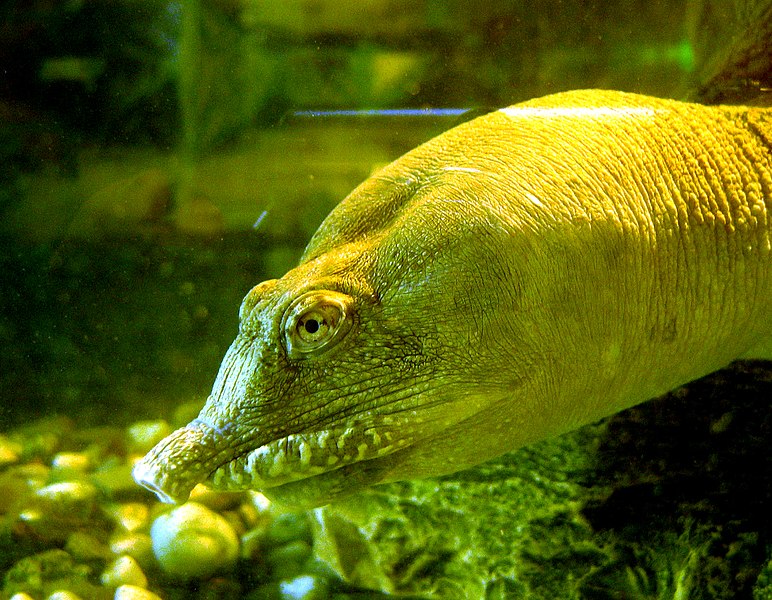In the course of my work, I am often contacted by turtle owners whose pets cease feeding and become unusually restless. The behavior appears suddenly, sometimes after many uneventful years – a Common Musk Turtle did so after 22 years in my collection – and seems to have no external cause. A normally placid turtle may begin frantically paddling or wandering about, trying to climb the sides of the terrarium and escape. Food, once the focus of the creature’s existence, is ignored.
It surprises some folks to learn that turtle and tortoise eggs may develop even if the female has never mated, and that mated animals may retain sperm and produce fertile eggs years later. Unfortunately, gravid (egg-bearing) turtles can be very choosy when it comes to nesting sites…a ½ acre exhibit failed to satisfy some I’ve cared for at the Bronx Zoo! If the eggs are not deposited, blockages due to over-calcification and life-threatening infections invariably result. Fortunately, there are ways to “convince” your pet to lay her eggs; failing this, several effective veterinary options are available.
What To Do
If your female turtle or tortoise suddenly stops feeding and begins to act as described above, first check that something has not gone wrong in the environment. Overheating, Lysol poured into the tank by a mischievous child (actual story), or cage-mate aggression can all cause similar behaviors.
If you suspect eggs, your best option would be to have radiographs done by a veterinarian (please post below if you need help in locating an experienced vet). Your vet can determine how many eggs are present, approximately how far along they are in their development, and if problems related to unusual size or over-calcification can be expected. Also, other health issues that may cause similar symptoms can be investigated. Read More »
 That Reptile Blog – Reptile, Amphibian and Exotic Pet Care and Information
That Reptile Blog – Reptile, Amphibian and Exotic Pet Care and Information



